Westminster Workers’ Compensation Lawyer
Workers’ compensation is the silent guardian that protects us from the unexpected twists and turns of the working world. It’s a lifeline for those who have been hurt on the job, providing the financial and medical support they need to heal and get back to work. It’s a system in place to take care of us, but it can be challenging to navigate. But with the knowledge and determination of a workers’ compensation lawyer in Westminster, CA, those affected can make the most of this safety net and ensure they are taken care of when we need it the most.
At Pratt Law Corporation, we have worked on behalf of injured workers for many years. Our experienced team of workers’ compensation attorneys understands the ins and outs of this complex system and how to ensure that employers are held accountable for their actions. We’ll ensure you get the benefits you deserve, from medical care to lost wages, so you can focus on getting better and returning to work. With the support of our team, you can be sure that your rights as an injured worker are protected and that you get the compensation you deserve. Connect with us today for an initial consultation focused on your case.

What Are the Most Common Workplace Injuries?
The most common workplace injuries include:
- Sprains and strains. These injuries occur when muscles or ligaments are stretched or torn. They are often caused by lifting heavy objects or performing repetitive motions. Sprains typically affect ligaments, which are the tissues that connect bones to joints, while strains usually affect muscles or tendons. Symptoms of sprains and strains include pain, swelling, stiffness, and difficulty moving the affected area.
- Cuts and lacerations. These injuries occur when sharp objects, such as knives or broken glass, break the skin. They are common in industries such as construction, manufacturing, and health care. Cuts and lacerations can vary in severity, from minor, superficial injuries to deep, severe wounds requiring stitches or surgery.
- Fractures. These injuries occur when a bone is broken. They can be caused by falls, heavy machinery, or other accidents. Fractures can be classified as simple or compound, closed or open, and can vary in severity from a small crack to a complete break. Symptoms of fractures include pain, swelling, and difficulty moving the affected area.
- Burns. Fire, chemicals, electricity, or other sources of heat can cause these injuries. They are common in industries such as manufacturing and construction. Burns can range in severity, from first-degree burns that affect only the outer layer of skin, to fourth-degree burns that damage deeper tissues and can cause permanent damage.
- Eye injuries. Flying debris, chemicals, or other hazards can cause these injuries. They can range from minor irritation to blindness. Common types of eye injuries in the workplace include corneal abrasion, foreign body in the eye, chemical burns, and traumatic cataracts.
- Hearing loss. This can be caused by exposure to loud noise over time, which is common in construction, manufacturing, and other industrial sectors. Prolonged exposure to loud noise can damage the hair cells in the inner ear, leading to hearing loss.
- Repetitive motion injuries. These injuries occur as a result of performing the same motions over and over again, such as typing or using a mouse. They can cause pain, numbness, and weakness in the hands, arms, and shoulders. Carpal tunnel syndrome, tendinitis, and tennis elbow are common repetitive motion injuries.
- Back injuries. These injuries can be caused by lifting heavy objects, repetitive motions, or poor posture. They can include strains, sprains, herniated discs, and other conditions that can cause chronic pain. Back injuries can range in severity from minor strains to debilitating conditions that can require surgery.
It’s worth noting that the most common workplace injuries may vary depending on the industry, and employers are responsible for providing a safe working environment and minimizing the risk of injuries by implementing safety measures, training employees, and performing regular safety audits to identify and address potential hazards.
How Does the Workers’ Compensation Claim Process Work?
The workers’ compensation claim process typically involves the following steps:
- Report the injury. The employee must report the personal injury to the employer as soon as possible. The employee should provide a detailed description of how the injury occurred and the symptoms they are experiencing.
- Seek medical treatment. The employee should seek medical treatment as soon as possible. The employer should provide information on how to access medical treatment and how to submit the medical bills to the workers’ compensation insurance.
- File a claim. The employee should file a claim with the employer’s workers’ compensation insurance carrier. The claim should include information about the injury, medical treatment, and any lost wages.
- Investigation. The insurance carrier will investigate the claim, including reviewing medical records, interviewing the employee and the employer, and conducting any additional research needed.
- Decision. The insurance carrier will decide on the claim, which may be accepted, denied, or delayed. If the claim is accepted, the employee will receive benefits such as medical expenses, lost wages, and other related costs. If the claim is denied, the employee may appeal the decision.
- Appeal. The appeal process typically involves requesting a hearing before a judge or an administrative law judge.
Common Reasons Workers’ Compensation Claims Are Denied in Westminster, CA
There are several reasons why a workers’ compensation claim may be denied. Some of the most common reasons include the following:
- Lack of evidence. The insurance carrier may deny the claim if there is not enough evidence to support it. This can include a lack of medical documentation, witness statements, or other relevant evidence.
- Failure to report an injury. The claim may be denied if the employee fails to report the injury within the required time frame.
- Pre-existing condition. The claim may be denied if the insurance carrier determines that the injury or illness is a pre-existing condition and not related to the employee’s job.
- Failure to follow medical treatment. The claim may be denied if the employee fails to follow the recommended medical treatment or if the treatment is deemed unnecessary.
- Intentional self-injury. The claim may be denied if the insurance carrier determines that the employee intentionally caused the injury or illness.
- Ineligibility. The claim may be denied if the employee is not eligible for workers’ compensation, such as if they are an independent contractor or not covered by the employer’s workers’ compensation insurance.
- Misrepresentation of facts. The claim may be denied if the employee provides false or misleading information on the claim or during the investigation process.
It’s worth noting that insurance companies are in the business of making money and are motivated to pay out less, so they may look for any reason to deny the claim. Therefore, it’s important to have all the necessary documentation, follow the procedure and guidelines provided by the state’s workers compensation board and seek legal advice if necessary.
Tips for Navigating a Denied Workers’ Compensation Claim
Navigating a denied workers’ compensation claim can be challenging, but there are several steps you can take to increase your chances of success:
- Review the denial. Carefully review the denial letter to understand the reasons for the denial. Be sure to check for any errors or omissions in the letter, and make a note of any deadlines for appealing the decision.
- Gather additional evidence. If the denial is based on a lack of evidence, try to gather additional evidence to support your claim. This can include medical records, witness statements, and other relevant documentation.
- Seek legal advice. Consider consulting with a workers’ compensation attorney who can review your case and advise you on the best action. In addition, an attorney will help you understand the laws and regulations related to workers’ compensation and guide you through the appeals process.
- File an appeal. If you appeal the decision, be sure to do so promptly and follow the procedures outlined in the denial letter. An attorney will help you with the appeal process, including preparing the necessary paperwork and representing you at the hearing.
- Be persistent. The appeals process can be lengthy, and it may take several months or even years for a final decision. Be prepared for delays, and continue to follow up on your case.
- Don’t give up. If your claim is denied, it doesn’t mean you are out of options. You may still be able to get benefits by appealing the decision or seeking other means of compensation such as Social Security Disability or other insurance policies.
- Be honest. Be transparent with your attorney, and be prepared to answer questions about your medical and work history.
It’s worth noting that navigating a denied workers’ compensation claim can be complex and time-consuming, and it’s important to seek legal advice and be persistent in pursuing your claim to increase your chances of success.
What Qualities Make an Effective Workers’ Compensation Attorney?
An effective workers’ compensation attorney should have the following qualities:
- Knowledge. A good attorney should have a thorough understanding of the laws and regulations related to workers’ compensation, not only in the state where the case is being handled but also in the specific industry the employee is working in. They should be familiar with the nuances of the system and stay up to date with any changes or updates. They should know the different types of benefits available, the medical treatments that are covered, and the requirements for each step of the claim process.
- Experience. An attorney with experience handling workers’ compensation cases is more likely to be able to navigate the system and advocate effectively for the client. In addition, they should have a good understanding of the common challenges and obstacles that may arise during the claim process and be able to find creative solutions to overcome them.
- Excellent communication skills. A good attorney should be able to communicate clearly and effectively with clients, insurance adjusters, and judges. They should be able to explain the legal concepts and procedures in a way that clients can understand, answer clients’ questions, and address their concerns. They should also be able to present the case in a clear, compelling, and convincing way to the insurance adjusters or the judges.
- Strong negotiation skills. An attorney should be able to negotiate with insurance companies to get the best possible outcome for the client. They should be able to advocate for the client’s rights and be able to negotiate fair settlements and reach agreements that are in the best interest of the client. They should have the ability to think critically and strategically and have a clear understanding of the insurance company’s position and goals.
- Attention to detail. The attorney should be able to identify and present all the evidence necessary to support the client’s claim. They should thoroughly review the medical records, work history, and other relevant information and be diligent in following up on documentation. They should also be able to identify and correct any errors or inconsistencies that may arise in the claim process.
- Empathy. An attorney should be able to understand the client’s situation and provide emotional support during a stressful time. They should be able to empathize with the client’s physical and emotional pain and provide guidance and support throughout the process. They should also be able to understand the client’s financial situation and help them understand the financial implications of the claim.
- Accessibility. The attorney should be available to answer clients’ questions and provide updates on the case. They should return phone calls and emails promptly and schedule regular meetings to discuss the case. They should also be able to provide clear and concise explanations of the case’s progress and the next steps.
- A track record of success. The attorney should have a proven track record of successfully handling workers’ compensation cases and getting positive results for clients. In addition, they should have a good reputation and be respected in the legal community, and have a history of winning cases and obtaining fair settlements for clients.
Contact Pratt Law Corporation Today
If you’ve been injured on the job and need an experienced workers’ compensation attorney, contact Pratt Law Corporation today. Our knowledgeable attorneys have years of experience handling workers’ compensation cases and understand the system’s complexities. We will fight for your rights and ensure you receive the benefits you deserve. Contact us today for a consultation and a fair shot at justice.




